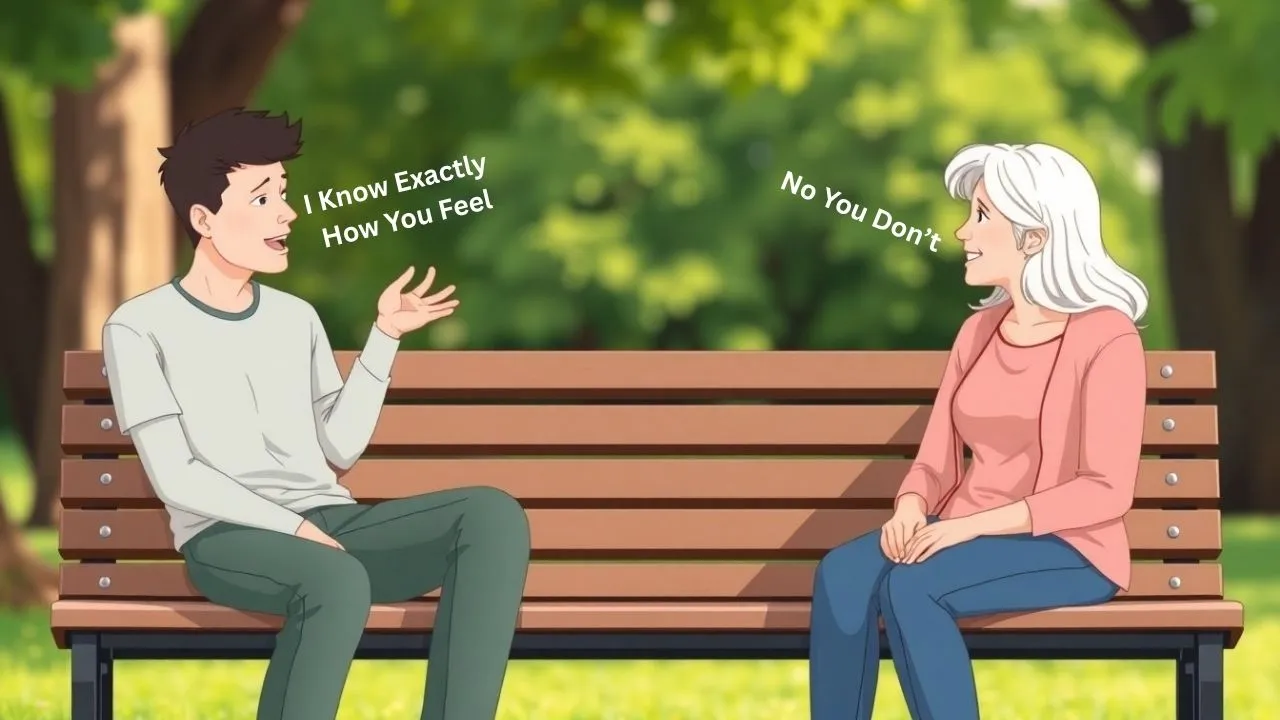
You Don't Know Exactly How I Feel
We’ve all heard it, and maybe even said: “I know exactly how you feel.” It’s a phrase that rolls off the tongue, especially with our closest friends and loved ones. But how true is it, really? Despite our confidence, the science says we might be getting it wrong more often than we think - especially with those we think we know best.
A study published in Journal of Experimental Social Psychology reveals what’s called the closeness-communication bias: the closer we are to someone, the more we overestimate how well we understand and communicate with them. In several experiments, people were actually more likely to make communication errors with friends and spouses than with strangers. The reason? When we talk to strangers, we work harder to check our assumptions and clarify our meaning. But with friends, we let our guard down, assuming shared perspective—and that’s exactly when misunderstandings sneak in.
Bottom line:
Closeness doesn’t grant you mind-reading powers. In fact, it might be doing the opposite—making you less accurate at reading between the lines.
"I Know Exactly How You Feel" Problem
Saying “I know exactly how you feel” often comes from a place of empathy, but genuine understanding is usually more complicated. Research shows that even our best attempts at perspective-taking such as imagining ourselves in someone else’s shoes is frequently flawed. Our experiences, histories, and personalities shape how we process events. Well-meaning attempts at empathy can unintentionally minimize or misinterpret what someone else is actually going through.
Empathy isn’t about perfect mind-reading; it’s about being present and open to another person’s unique perspective.
When people assume they fully understand a loved one’s experience, they may stop asking questions or listening deeply. This can lead to missed opportunities for true connection and support.
Try instead:
- Asking open-ended questions like “What has this been like for you?”
- Inviting real dialogue with “How are you feeling right now?”
Common Empathy Mistakes
Even with the best intentions, it’s easy to stumble when trying to empathize. Here are a few common pitfalls:
- Projection:
Assuming others feel or think the same as you do. This can block us from understanding another person’s unique perspective (Psychology Today). - Comparison:
Drawing parallels to your own life can make others feel dismissed or minimized (Harvard Business Review). - “One-Upping”:
Responding to someone’s pain by sharing something bigger from your own life shifts the focus away from them. - Jumping to Solutions:
Rushing to offer advice before someone feels heard can backfire (Greater Good Magazine). - Assuming Understanding Without Asking:
Skipping the important step of listening and asking questions, and using shortcuts like “I know exactly how you feel.”
Recognizing these missteps helps us become better listeners and more genuine supporters, meeting people where they are, not where we assume them to be.
Practical Tips for Everyday Communication
Building better connections is about small, consistent habits. Try these tips:
- Listen Without Interrupting:
Give your full attention, resisting the urge to jump in (MindTools). - Ask Open-Ended Questions:
Encourage deeper sharing (“Can you tell me more about that?”) (Greater Good Magazine). - Check Your Understanding:
Repeat back what you’ve heard: “So what I’m hearing is…” (Verywell Mind). - Validate Feelings:
Use phrases like “That sounds tough” or “I can see why you’d feel that way” (Harvard Business Review). - Be Aware of Body Language:
Eye contact, nodding, and open posture matter (Psychology Today). - Avoid Unsolicited Advice:
Ask, “Would you like my thoughts or do you just need to vent?” - Express Appreciation:
Thank people for sharing: “I appreciate you trusting me with this.”
Why This Matters
Real understanding is the foundation of strong, lasting relationships.
When we genuinely listen and strive to understand others without assuming or projecting, we build trust and emotional safety. People are far more likely to open up, collaborate, and support one another when they feel truly heard.
- Authentic empathy leads to higher relationship satisfaction and better conflict resolution (Greater Good Magazine).
- In workplaces, good communication increases productivity and well-being (Harvard Business Review).
Misunderstandings and assumptions (especially with those closest to us) can erode trust and leave people feeling unseen or alone. But listening, checking our assumptions, and validating each other’s experiences creates a culture of openness and respect.
In a world that encourages quick responses and surface-level connection, slowing down to truly understand is a small act with a big impact.
Takeaway:
Next time you’re tempted to say “I know exactly how you feel,” pause. Listen. Ask questions. Let understanding grow in the space between your words, and theirs.
If this post resonated with you or sparked new insights, share your thoughts or pass it along to someone who might need it today.
#Kindness, #CWH, #Empathy, #Communication, #Relationships, #EmotionalIntelligence, #PersonalGrowth, #MentalHealth, #SelfAwareness, #Wellbeing
Edited with assistance of Google Gemini